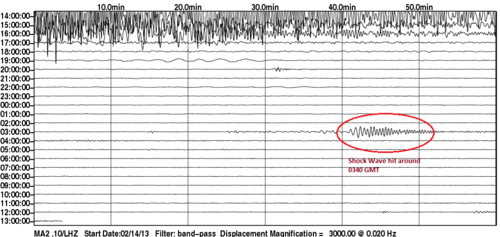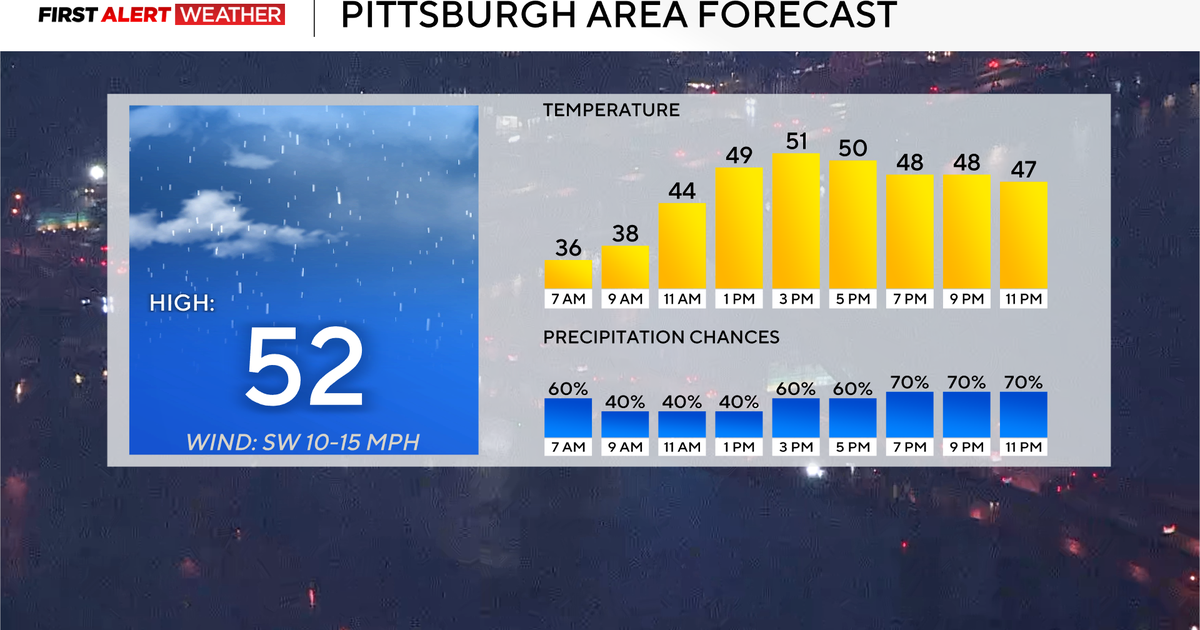Weather Blog: Russia's Most Shocking
This morning we're hearing that a "shock wave," created by a meteor, caused damage and injuries in Russia last night. So far a few people have asked me: "uhhhhhhhh… what is a shock wave?" No, seriously, they did ask… and just like that.
A shock wave is defined as "a region of abrupt change of pressure and density moving as a wave front at or above the velocity of sound."
Even if you don't speak nerd you've definitely experienced at least one type of shock wave in your life: thunder. Thunder is the "thermal shock wave" we hear when lightning instantaneously heats a narrow channel of air to a temperature that's 3 to 5 times hotter than the sun; the superheated air expands so quickly that it makes a sound.
Another type of thermal shock wave can be seen in this delightfully quaint NOSTALGIA BREAK: a 1955 US Army video that shows the effects of a nuclear bomb test on "Survival Town" :)
The boom that was heard in Russia last night wasn't generated by a thermal shock wave, though; while the meteor was definitely hot, it wasn't exploding when it entered the atmosphere. Instead, the meteor generated a shock wave that was more like the "sonic boom" a fast-moving jet makes.
All moving objects—from jets to meteors to cats—push air out of the way as they travel through space. As this air moves aside it creates invisible ripples (pressure differences) in the surrounding air, which can be heard as sound waves. As the cat goes faster the sound waves are packed tighter, and pressure builds up.
If you consider that the speed of sound in air is essentially a constant 768 mph (even though it does vary some with altitude), it is possible for the cat to go so fast that it outrun the sound waves. If this happens, (1) your cat is amazing; but, more importantly (2) an observer, who was standing still, would see the cat zip by soundlessly… followed later by the sound it makes. And, since the sound waves trailing the cat would be packed together tightly, they would sound like a loud crack when they reached your ears.
The faster the moving object, the louder the crack. And, the farther your ear is from the object, the more rumbling/booming/thundering it will sound. So, yeah, a meteor going by at 33,000 mph several miles overhead would definitely sound scary and blow out windows. That's what happened in Russia last night.
Either that, or there was a really fast cat passing by.
By the way—the meteorite strike and/or shock wave that happened in Russia may actually have been picked up by seismographs (used to measure earthquakes) around the world. Here's a seismograph plot from Magadan, Russia; about 3,000 miles away from where the meteorite fell to the earth in Chelyabinsk, Russia. That's one big meow!








